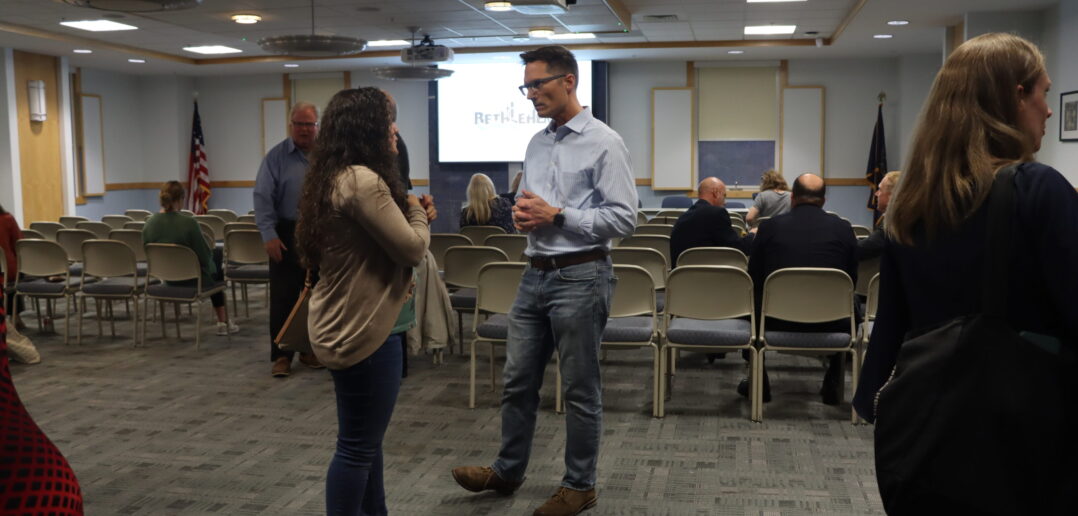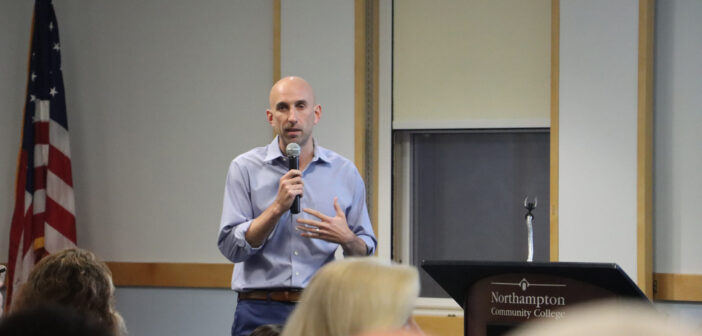We Build Bethlehem hosted an event to share the results of the 2022 pandemic priority survey and discuss how the data will factor into the city’s 2023 investment strategy.
We Build Bethlehem is City Hall’s initiative to involve Bethlehem constituents in decision-making and provide a hub for community engagement.
Launched in April, We Build Bethlehem’s first project focuses on pandemic recovery and the American Rescue Plan — this was at the heart of the presentation and discussion on Oct. 26.
Mayor J. Williams Reynolds said the city’s pandemic recovery goals include balancing short-term recovery versus long-term investments, creating systemic solutions to prevent the problem and developing sustainable solutions.
“It’s not about what you’re doing in (2022) or (2023),” Reynolds said. “It’s what we are going to be doing for the next five, 10, 15, 20 years.”
Laura Collins, Bethlehem’s director of community and economic development, said during the pandemic, the City of Bethlehem received $9 million from the CARES Act, which the Health Bureau allocated toward contact tracing, COVID-19 tests and vaccination clinics.
Collins said the city also used funds from the act to invest in a mobile medical health van to help underprivileged neighborhoods and software to assist in public health data collection and analysis.
Bethlehem also received funding from the American Rescue Plan Act, which is a $1.9 trillion federal package passed in March 2021 to help the country respond to and recover from the pandemic.
“The City of Bethlehem has got $34 million to work with, and by replacing lost municipal revenue, we’re going to be able to leverage the resulting funds to make these meaningful systemic investments that Mayor Reynolds talked about that are helping the community and moving us forward,” Collins said.

Individuals at the event talked amongst themselves before the presentation started. (Sophie Baraker/B&W Staff)
The We Build Bethlehem Survey was distributed to see what areas members of the Bethlehem community found to be most important for the allocation of funds and resources.
The survey was offered online and on paper to make sure it reached as many people as possible. As of Oct. 24, there were 285 responses to the digital survey and 308 responses to the paper survey, according to a PowerPoint presentation put together by the We Build Bethlehem team for the meeting.
“Residents (were) prompted to look at 22 priorities and pick their top 10,” said Janine Carambot Santoro, the city of Bethlehem’s director of equity and inclusion. “After gaining that feedback, we could then begin thinking about the tangible things we could do around pandemic recovery in the short term during the engagement process and also in the long term, in order to plan a process using the American Rescue Plan dollars.”
Out of the 22 options, the top priorities respondents hold are mental health and counseling services (60.6%), food assistance (57%) and the construction of a permanent homeless shelter (56.9%). Housing counseling and support (19.6%) and public communication tools (15.1%) were ranked lowest, according to the presentation.
Recently, the City of Bethlehem proposed its first year-round homeless shelter, which was discussed during the Oct. 26 meeting and at a City Hall meeting about the homelessness strategic plan. This is one example of how they are using these survey results to alter and improve the city, Reynolds said.
“We’re trying to find a way to invest in all of these buckets, and we’re trying to find a way to do it on a systemic level,” Reynolds said.
The city plans to create a Community Recovery Fund for those who are disproportionately affected by the pandemic, said Alicia Miller Karner, Bethlehem’s deputy director of economic development.
“Our goal is to get funds to those who need it the most,” Miller Karner said. “We want to do that in the most efficient and easiest way possible.”
More information can be found on the We Build Bethlehem website.






Comment policy
Comments posted to The Brown and White website are reviewed by a moderator before being approved. Incendiary speech or harassing language, including comments targeted at individuals, may be deemed unacceptable and not published. Spam and other soliciting will also be declined.
The Brown and White also reserves the right to not publish entirely anonymous comments.